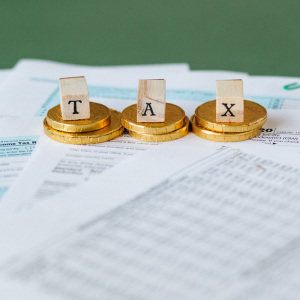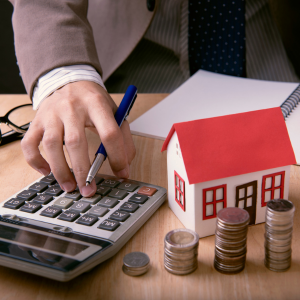
Comprehensive Overview of Real Estate Taxes for Buyers and Sellers
Buyers and sellers must understand real estate taxes when purchasing or selling a home in Brownsville, Texas. Property taxes are an enormous concern in Brownsville, considering they influence the cost of home-buying.
Buyers of real estate in Brownsville need to know that the Cameron County property taxes in Brownsville are bound to the area and school district. Buyers need to evaluate these rates to make their future financial plans accordingly.
Sellers in Brownsville must also consider property taxes when calculating potential profits from a sale, as unpaid taxes could affect the transaction. Further, both parties must be aware of applicable exemptions or deductions to maximize their financial returns.
For example, homestead exemptions can decrease the taxable value of primary residences, lowering homeowners’ tax burdens. Adjustments might change the appraisal values of real estate, and as such, all buyers and sellers should be cautious of the current appraisal values in the market.
Engaging local tax experts and real estate professionals who understand Texas tax laws can be helpful when buying or selling a property in Brownsville, and House Buyers RGV can help you through every step of the process.
What Are the Taxes on Selling a House in Texas?
Understanding their responsibilities after selling a home in Brownsville, Texas, is of utmost importance to homeowners. Like the other states, Texas does not levy a capital gains tax for selling properties within its borders. That said, there may be some federal capital gains taxes involved.
It comes into play when your profit surpasses the IRS exclusion limits of $250,000 for individual filers or $500,000 for married couples filing jointly. The other point that needs to be considered is the property taxes, since they are prorated at closing between the buyer and seller according to the time each party owns the property during the year.
While Texas does not impose a state transfer tax or recording fee when selling a property, local regulations might vary slightly. If your primary domicile differs from before, or if you have employed a portion of your residence for business activities, consider the potential capital gains ramifications.
Collaborating with a knowledgeable Brownsville real estate professional alongside a local tax professional can optimize your compliance and financial advantages while streamlining the selling process for your home. Also, knowing how to change real estate agents can help ensure you’re working with someone who truly aligns with your goals.
Who is responsible for sales tax in Texas, whether a buyer or seller?
Understanding the nuances of tax obligations is crucial when selling your home in Brownsville, Texas. In Texas, there is no state sales tax on real estate transactions, which means neither the buyer nor the seller is directly responsible for paying a sales tax when a property changes hands.
However, both parties should be aware of other related costs and taxes involved in the transaction. Suppose the home has appreciated significantly since purchase. In that case, the seller may be responsible for capital gains tax. At the same time, cash home buyers in McAllen and surrounding cities in Texas need to consider property taxes and possibly an escrow account set up by their lender to cover future property tax obligations.
Every seller and buyer in Brownsville requires the advice, at a minimum, of a local real estate expert or a tax professional to help navigate the applicable legal and financial obligations associated with the sale of a home. They avoid difficulty later by ensuring no surprises during a transaction.
Who Is Responsible for Paying Property Taxes in Texas?
Understanding property tax responsibilities is crucial for home sales in Brownsville, Texas. Property taxes are typically the homeowner’s responsibility in Texas, meaning the seller must settle any outstanding property taxes before transferring ownership.
When a home sale occurs in Brownsville, an important step is determining how property taxes are prorated between the buyer and the seller. The seller is generally responsible for paying property taxes up to the closing date, while the buyer assumes responsibility for taxes due after that date.
This proration ensures that each party pays their fair share based on their period of ownership within the tax year. Buyers and sellers in Brownsville must review local tax regulations and consult with real estate professionals to fully understand their tax obligations during a home transaction.
Additionally, title companies often play a critical role in accurately assessing and allocating these property tax responsibilities during the Texas closing process. Understanding these nuances helps prevent any disputes or surprises related to property taxes when buying or selling homes in Brownsville.
Who Pays Property Taxes at Closing in Texas?
In Brownsville, Texas, understanding who pays property taxes at closing is crucial for home buyers and sellers. At the closing of a real estate transaction, property taxes are typically prorated between the buyer and seller based on the time each party owns the property during the tax year.
In Texas, property taxes are paid annually in arrears, covering the previous year. During a home sale in Brownsville, the seller is responsible for paying their share of property taxes from January 1st through the closing date.
The buyer assumes responsibility for property taxes from the day after closing until December 31st. This proration ensures that both parties fairly contribute to their respective portions of the annual tax obligation.
Buyers and sellers in Brownsville must work closely with their real estate professionals and title companies to accurately calculate these amounts to avoid surprises at closing. Understanding this process helps ensure a smooth ownership transition and compliance with local tax responsibilities in Texas home sales.
Understanding Capital Gains Tax When Selling Property in Brownsville, Texas

It is crucial to understand the implications of capital gains tax when selling property in Brownsville, Texas. Capital gains tax is levied on the profit made from the sale of appreciated property.
In Brownsville, as with the rest of Texas, homeowners must determine if their home sale qualifies for an exclusion under federal tax laws. The IRS generally allows homeowners to exclude up to $250,000 of capital gains from taxation if they meet certain conditions; this amount increases to $500,000 for married couples filing jointly.
To qualify for this exclusion, the property must have been used as a primary residence for at least two of the five years preceding the sale. It’s important for sellers in Brownsville to be aware that any gain exceeding these thresholds may be subject to capital gains tax at federal rates that depend on their income bracket.
Additionally, while Texas does not impose a state income tax, sellers should still consult with a tax professional to ensure compliance with all relevant regulations and potentially maximize their exclusions. Understanding how these rules apply can significantly impact financial outcomes when selling real estate in Brownsville. Feel free to contact us for guidance tailored to your specific situation.
Essential Steps for Selling Your Home in Brownsville, TX
Step-by-Step guide in selling your home in Brownsville, Texas:
- Understand Potential Capital Gains Tax
– Determine if you’ll owe federal capital gains tax on your home sale. This depends on how much profit you make and whether you meet IRS exemption requirements. - Meet IRS Exclusion Requirements
– To qualify for the capital gains exclusion ($250,000 for single filers, $500,000 for married couples), you must have lived in the home as your primary residence for at least two of the last five years. - Consult a Local Real Estate or Tax Professional
– Work with professionals who understand Texas property laws and federal tax rules. They can help you calculate any potential tax liability accurately. - Take Advantage of No State Income Tax
– Texas does not have a state income tax, which simplifies certain aspects of your financial planning when selling a home. - Pay Property Taxes Up to the Date of Sale
– You are responsible for paying property taxes up to the closing date. These are typically prorated between buyer and seller. - Track Home Improvement Expenses
– Keep detailed records of all qualified home improvements. These costs can increase your cost basis, potentially lowering your taxable gain. - Stay Informed to Minimize Surprises
– By understanding your obligations and getting expert advice, you can avoid unexpected tax issues and maximize your net profit from the sale.
Does a Seller Pay Property Taxes at Closing in Texas?

Understanding your tax responsibilities is crucial when selling your home in Brownsville, Texas. One common question is whether a seller pays property taxes at closing in Texas.
Property taxes are typically prorated between the buyer and seller at closing in Texas. This means the seller is responsible for paying the property taxes corresponding to the time they owned the home during the current tax year.
At closing, these prorated property taxes are calculated based on the annual tax bill and settled accordingly. Sellers should know this obligation to avoid surprises during real estate transactions.
Consulting with a local real estate professional or tax professional can clarify how property taxes are handled in Brownsville and ensure that all financial responsibilities are met when closing your home sale. Understanding how these costs are allocated helps sellers manage their financial responsibilities effectively during a home sale in Texas.
How Much Tax Do You Pay When You Sell Your House in Texas?
Understanding the tax implications when selling your home in Brownsville, Texas, is crucial to avoid unexpected financial burdens. In Texas, homeowners benefit from not having a state capital gains tax; however, federal capital gains taxes still apply.
If you’ve lived in your Brownsville home for at least two of the last five years before the sale, you might qualify for a significant exclusion—up to $250,000 for single filers and $500,000 for married couples filing jointly—on the profit made from the sale. Many homeowners won’t owe any federal capital gains tax if their profit falls within these limits.
However, it’s essential to accurately calculate your home’s cost basis, considering factors like improvements and closing costs. Consulting with a tax professional familiar with Texas real estate transactions can provide personalized advice and ensure compliance with IRS regulations when selling your house in Brownsville. For more details on local tax figures and how they might impact you as a homeowner, see our post, Brownsville, TX Property Tax Rate: Understand Property Taxes and Tax Rates in Brownsville.
How Much Do You Pay the IRS When You Sell a House?

When selling a house in Brownsville, Texas, it’s crucial to understand your tax obligations to the IRS. The amount you pay depends on several factors, including capital gains tax implications and eligibility for exclusions.
Typically, when you sell your home for cash in Harlingen and other cities in Texas, you’re subject to capital gains tax on the profit made from the sale. However, under certain conditions, homeowners can qualify for the home sale exclusion, which allows individuals to exclude up to $250,000 of profit from taxation and married couples filing jointly to exclude up to $500,000.
To be eligible for this exclusion in Brownsville or any part of the U.S., you must have owned and lived in the property as your primary residence for at least two of the five years preceding the sale. It’s essential to keep accurate records of home improvements and expenses that can adjust the cost basis of your property, potentially reducing taxable gain.
Consulting with a tax professional familiar with Texas real estate transactions can help ensure compliance with IRS regulations and optimize your financial outcome when selling your home.
Do I Have to Pay Taxes If I Sell My House in Texas?
Understanding your tax responsibilities is crucial when selling a home in Brownsville, TX. While Texas does not impose a state income tax on the sale of real estate, you may still be subject to federal capital gains taxes.
Suppose you sell your primary residence and meet specific requirements, such as owning and living in the home for at least two of the last five years. In that case, you might qualify for an exclusion of up to $250,000 in capital gains for single filers or $500,000 for married couples filing jointly. This can significantly reduce your taxable amount when selling a house in Brownsville.
However, different tax rules apply if the property was used as a rental or investment rather than a primary residence. It’s also important to keep records of home improvements made during ownership, as these can increase your cost basis and potentially lower your capital gains tax liability.
Consulting with a tax professional who understands Texas real estate transactions can provide valuable guidance tailored to your situation when navigating tax responsibilities after selling your home in Brownsville.
Is selling your house necessary? If you prefer a hassle-free sale, avoid costly repairs, or sell quickly, House Buyers RGV can assist. We ensure a seamless process, handle all the details, and offer fair cash. Are you prepared to sell, or do you have any questions? Don’t hesitate to contact us at (956) 255-8168 for a free, obligation-free offer. Commence immediately!
| PROPERTIES | LAND OWNER | LEVY | TAXED | TAXABLE PROPERTY | TAXABLE PROPERTIES |
| BROWNSVILLE, TX | ASSETS | TAX EXEMPTION | INFORMATION | TRANSACTION FEES | EFFECTIVE TAX RATE |
| TAX RATE | PROPERTY VALUE | EVIDENCE | MORTGAGE | MORTGAGE LOAN | MORTGAGE LENDERS |
| PAYMENTS | MONEY | PRICE | INCOME | HOMESTEAD EXEMPTION | CREDIT |
| BANK | STATE SALES TAX | SALES TAXES | REALTOR | MOTOR VEHICLE | LESSEE |
| LEASED | INVENTORY | INTEREST | GOODS | DISABLED | DISABILITY |
| DISABLED PERSONS | COMPANY | AFFIDAVIT | REAL PROPERTY | HOMEOWNERSHIP | INVESTMENTS |
| COURT | TRANSFER TAX | RENTALS | RENTING | INVESTMENT PROPERTY | REAL ESTATE INVESTOR |
| P.O. BOX | POLICY | OWNERSHIP | INSURANCE | PREMIUMS | GOAL |
| EXPENSE | ESCROW | ESCROW ACCOUNT | EMAILED | VETERAN | TITLE SEARCH |
| TITLE INSURANCE | TELEPHONE | TAXPAYER | TAX BURDENS | TAX BREAK | TAX BRACKET |
| TABLE OF CONTENTS | PERCENTAGE | ATTORNEYS | LAWSUIT | JUDGMENT | INVESTORS |
| INSPECTION | INCOME TAX |
